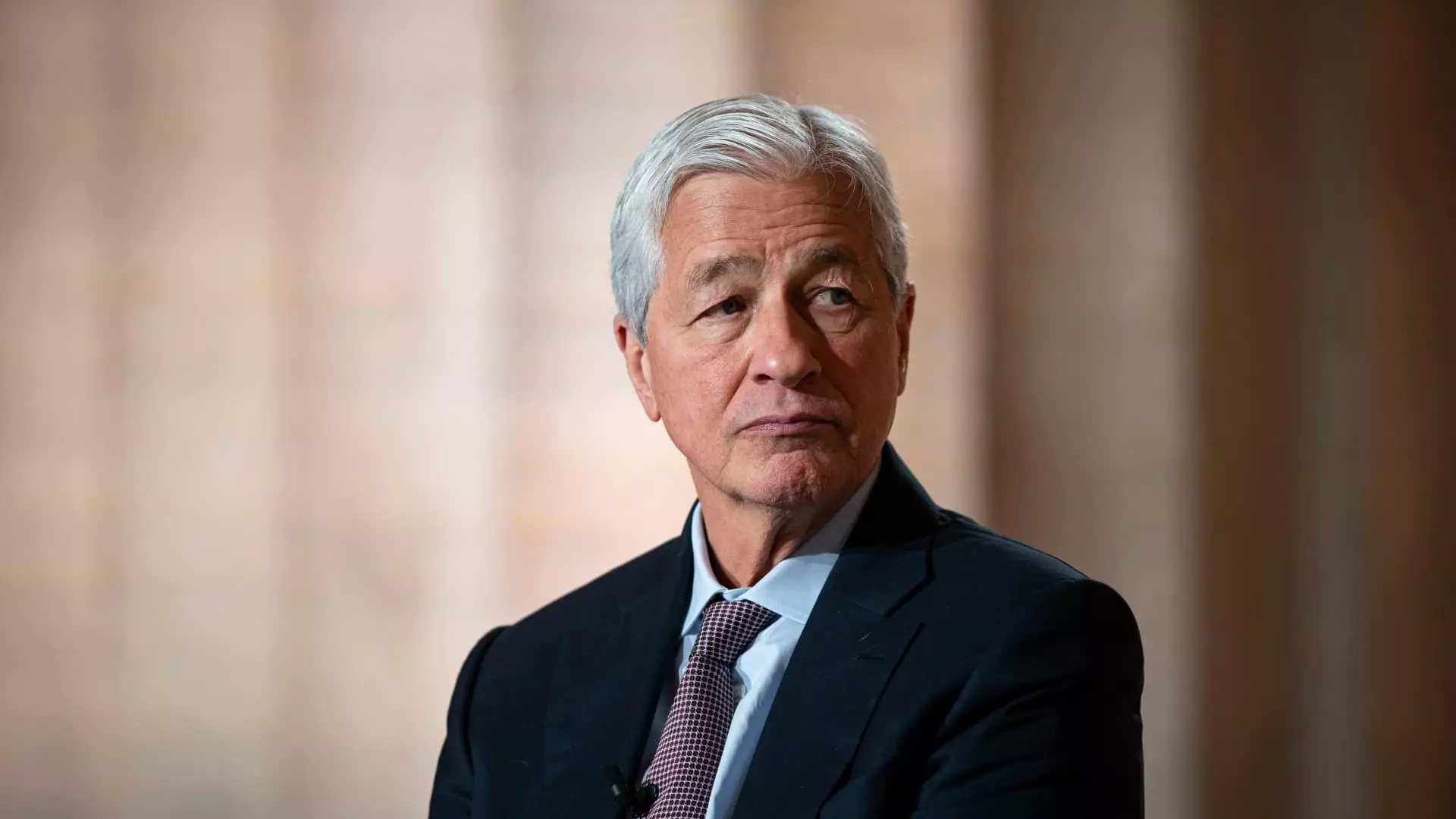As JPMorgan Chase prepares to announce its first-quarter earnings results, anticipation runs high in the financial industry. Expected earnings hover around $4.61 per share, with total revenues projected to reach $44.11 billion, according to recent analyses by LSEG. What makes this earnings report particularly significant is the timing; it comes in the wake of increased economic disarray caused by escalating trade tensions and changing tariff strategies under former President Donald Trump. Such factors have made the financial landscape more unpredictable, prompting investors to scrutinize how both consumers and businesses are responding to these shifting conditions.
The Weight of Global Trade Dynamics
The discussion surrounding JPMorgan’s earnings is not merely about numbers; it’s intricately tied to larger global economic forces. Trump’s proactive approach to tariffs, which he escalated starting on April 2, has provoked widespread concern among banks, economists, and businesses alike. Jamie Dimon, CEO of JPMorgan, has been vocal about his fears that aggressive tariff policies could plunge the U.S. into recession. This perspective underscores the inherent risk for financial institutions that thrive on robust economic growth. With tariffs potentially altering consumer behavior and corporate investment strategies, the financial sector finds itself navigating uncharted waters, complicating the interpretation of quarterly earnings as a reliable indicator.
Inconsistent Market Signals and Investor Sentiment
With bank stocks experiencing erratic fluctuations fueled by recession anxieties, the landscape for investors has become distinctly fraught. The significance of historical earnings reports may diminish against the backdrop of broad economic volatility. Although analysts will dissect JPMorgan’s quarterly performance, the question remains: How relevant is this data in such an unpredictable environment? Investors are keenly aware that bank executives will likely focus on prior performance, yet the profound uncertainty regarding future economic conditions looms large, overshadowing any backward-looking analysis.
Opportunities Amidst Adversities: Wall Street’s Contradictions
Despite the gloom shaping investment banking activities like IPOs and mergers and acquisitions, a paradox emerges: some areas within financial markets may thrive amid chaos. Volatility often heightens trading opportunities, allowing Wall Street’s trading desks to capitalize on market fluctuations. Hence, while some traditional banking avenues appear dim, others are poised to generate substantial profits. This duality in the financial landscape illustrates the complex web of opportunity in times of uncertainty.
Looking Ahead with Strategic Caution
As the world eagerly awaits JPMorgan’s earnings report, the broader implications of its findings may reverberate through the financial markets for weeks to come. Stakeholders will be weighing insights from the quarter against the backdrop of transformative economic policies and global relations. Whether JPMorgan’s report serves as a harbinger of resilience or a signal of looming challenges, it will undoubtedly provide critical information that shapes investors’ strategies and expectations in a climate fraught with unpredictability.

